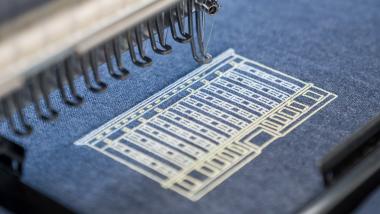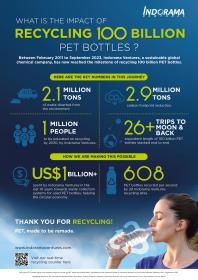Carbios and L’Oréal win Pioneer Award for PET recycling solution
Carbios and L’Oréal have won the “Pioneer Awards” in the Industry category, presented by the Solar Impulse Foundation at the first World Alliance Summit. This prize was awarded to Carbios for its enzymatic PET recycling solution, labeled “Efficient Solution” by the Solar Impulse Foundation since 2019, and to L’Oréal for using this technology for the first time in a cosmetics bottle prototype. Carbios’ solution offers brands an alternative to petro-sourced plastic that helps them meet their sustainability commitments. This advancement paves the way for future applications in other sectors such as packaging, food and beverage, and textiles.
Carbios and L’Oréal: a long-term collaboration
Since 2017, Carbios and L’Oréal have been working together with a shared vision of accelerating the transition to a circular economy for plastic. In 2017, both companies created a Consortium to improve the recyclability and circularity of PET packaging. Nestlé Waters, PepsiCo and Suntory Beverage & Food Europe joined this Consortium in 2019 to scale up Carbios’ innovation. The world’s first enzymatically recycled PET packaging was made in 2021 using Carbios’ biorecycling process. The world’s first PET biorecycling plant is scheduled to be commissioned in 2025. In parallel, Carbios is rolling out its technology internationally through licensing agreements.
The environmental benefits of biorecycling developed by Carbios
Recent life-cycle analyses[1] show a 57% reduction in CO2 emissions compared with the production of virgin plastic[2], and for every tonne of recycled PET produced, 1.3 tonnes of petrol are avoided. Compared with conventional recycling, enzymatic recycling is 4 times more circular (calculated according to the Ellen MacArthur Foundation’s Material Circularity Indicator). Thanks to its highly selective enzyme, optimized for efficient PET degradation, Carbios’ depolymerization process can process all types of PET waste, including colored, multilayer or textile waste that cannot be recycled using current technologies. Furthermore, the two monomers produced (PTA and MEG) make it possible to recreate recycled PET products of identical quality to virgin ones, and suitable for food contact.
[1] Database ecoinvent 3.8
[2] French scenario, taking into account the detour of 50% of PET waste from conventional end-of-life. Virgin PET: 2.53 kg CO2/kg (cradle to gate)
Carbios






























